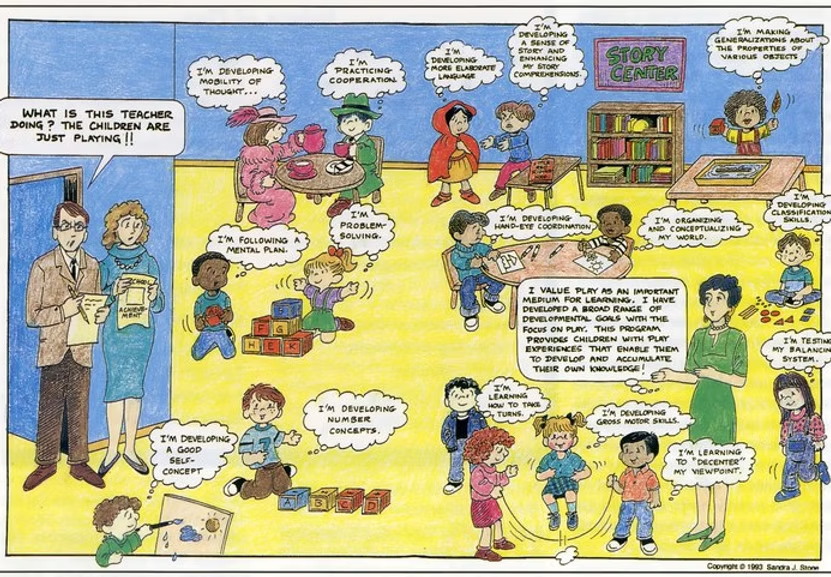Get to know what Covey is all about—how we gather, what we value, and what to expect when you join our community.
Covey is a nonprofit learning community working on 501(c)(3) status.
We plan for about 22 young people of all ages.
Mondays
10am – 3pm
We are flexible with pick-up time if you want a shorter day. However, we like to start together so that all can participate in our brief opening circle.
Ages 0–18
Parents and guardians are welcome to drop-off or stay – for part or all of the time. We do not assist young people in bathrooms or change diapers, so if your young person has those needs, a parent/guardian will need to stay on site at all times. Adults who stay will participate in our opening circle and are welcome (but not required) to make offerings to the group (activities, supplies, etc). Young people of all ages are also welcome to make offerings. To read more about the shape of our days go here and scroll down to the blue “What a Day Holds” button.
Family Contributions
$196/month
$148/month for each extra sibling
Months have four Mondays, except August and December, which have three Mondays and will be prorated: $147/month; $111/month for each extra sibling.
There is a $10 registration fee per family.
Drop-Ins — If we have space, we welcome Drop-Ins!
Per day: $65, $48 per extra sibling
See more info below in the FAQ.
We Believe in Financial Aid
Please don’t let the cost turn you away. We mean it when we say that accessibility is important to us. Please click on this blue button for more info.
Safety
We value risky play and want kids to have a lot of autonomy and freedom. And we know that proper safety is felt in an environment where people know what to expect and support is consistent. Safety is very important to us. We will make agreements together as a community that include how to keep everyone safe, physically and emotionally. We find that when young people participate in creating these agreements, they are much more likely to follow them. Young people will always be within eyesight of an adult. No adult will go into a bathroom (or change diapers) with a young person who is not their own. Weapons are not allowed. (If young people want to bring knives for whittling, we’ll discuss that and make agreements.)
¿Habla Español?
¡Sí! Emily habla español y le encantaría hablar español contigo y tus hijos
Frequently Asked Questions (FAQs)
What are the Ages for Covey?
Ages 0–18
Parents and guardians are welcome to drop-off or stay – for part or all of the time. We do not assist young people in bathrooms or change diapers, so if your young person has those needs, a parent/guardian will need to stay on site at all times. Adults who stay will participate in our opening circle and are welcome (but not required) to make offerings to the group (activities, supplies, etc). Young people of all ages are also welcome to make offerings.
To read more about the shape of our days go here and scroll down to the blue “What a Day Holds” button.
What is Self-Directed Education?
“It is a miracle that curiosity survives formal education.” ~ Albert Einstein
Psychologist Peter Gray introduces self-directed education as a learning approach where young people freely pursue their interests in supportive, collaborative communities. He explains how this method naturally fosters curiosity, competence, and social skills without coercive curriculum.
Essay: A Thousand Rivers
In this essay, Carol Black critiques how modern schooling—and the narrow data it produces—distorts our understanding of learning, arguing that true learning flourishes in mixed-age, natural, curiosity-driven environments that honor human diversity and intrinsic capacity.
Why do you say “young person” rather than “child,” “kid,” or “student”?
We try to use the term “young person” (plural = “young people”) to emphasize that they are people just like us. They are not a separate class of being that adults should control or be viewed as “less than” in our society. Their feelings, their ideas, and their rights are every bit equal to those of adults. It is not only unnecessary, it’s inappropriate to amend our behavior because somebody is younger, particularly in a dominating way. That is not to fail to acknowledge that there are obvious developmental differences in terms of knowledge and skills, but we aim to be respectful of who they are in the most basic ways. But don’t worry, we don’t police this language or judge you for using “kid,” “child,” etc.
What do adult facilitators do at Covey?
Adults at Covey who are paid staff or official volunteers are called “facilitators.” We do not typically call ourselves “teachers” because everyone and everything is a potential teacher. Additionally, the “teacher” title implies a power dynamic of adult-as-authority over young-person-as-empty-vessel that does not align with our values. Facilitators mostly focus on facilitating the process by which young people explore the content of their choosing. They are ultimately responsible for the survival and smooth functioning of the program. On a day-to-day basis, facilitators focus on holding the space in which young people can be free within the boundaries of safety and respect. Facilitators focus on the process of connection-making. They identify where you are in the process of pursuing your own interests and then help you to the extent that you ask for it and that is helpful. Each facilitator brings their own interests, skills, and expertise to their role. Facilitators are shape-shifters, adjusting to the needs of a particular moment or young person. In a given day at Covey, a facilitator moves among being coach, teacher, partner, group leader, parallel-player, referee, witness, problem-solver, or chaperone.
How does the Drop-In Process work?
If we have space, we welcome Drop-Ins! This is a great option for you, for example, if you know you won’t be able to attend the whole month. Simply register (on the Join page) and let us know you want to do Drop-Ins. If you need financial aid, let us know.
Then, up to the day before you want to Drop-In, send us an email (or send Emily a text: 617-501-zero-zero-two-zero). We will send you an invoice for the Drop-In contribution. Pay in advance and then show up! If your young person wakes up the next morning and isn’t feeling up for it, we can offer you a make-up day..
Are you like a Forest School?
We are very similar to Forest Schools, and different in some other ways. Like a typical Forest School, Covey meets outside in all weather and values risky play and exploration. While Forest Schools usually work to generally align their curriculum with children’s interests and follow children’s curiosity, we start with their interests always. We are radically grounded in our values of youth autonomy and life-long self-directed education. (“Radical” comes from “at the root.”) Also, while we value nature and being outdoors, nature is not necessarily our curriculum. Young people can choose all kinds of activities that are doable in our outdoor spaces. Our curriculum is our process of deeply valuing young people’s intrinsic love of learning, and intentionally creating a community that nurtures their relationship with themselves, their learning, and each other.
What if my young person just plays all day long?
“Play is the highest form of research.” ~ Albert Einstein
Play is probably just what they need! Play is learning. There is a reason that nature has endowed young people with an intense need to play in their earliest years, at a time when they are learning faster than at any other point in later life. Also: play is valuable at every age. Through play we practice our physical, intellectual, social, and emotional skills.

What if my young person doesn’t want to do anything all day?
“If you force young people to study things that they are not interested in, they may come to appear to be lazy.” ~ Jerry Mintz, founder of Alternative Education Resource Organization
We often see this in young people who are burnt out from attending school or school-at-home. Depending on how many years your young person has been in a conventional school setting, they may go through a period of deschooling when they first leave school. We see this as a valuable and necessary transition time in which the young person gets back in touch with themself. This may include long periods of doing nothing at all. We encourage families to do at least some deschooling at home, separate from any program, before joining us. For some, this may look like leaving school in June, consciously deschooling in the summer (although this is somewhat of an oxymoron; deschooling thrives when the consciousness rests and the subconscious wakes up!), and committing to trying something new in the fall. It may take longer than a summer. Caregivers need to accept this as part of the process, as well as do their own deschooling. If parents do not recognize their schoolishness and need for deschooling, they will continually butt up against our philosophy, which can be quite difficult. For families who are committed to developing in self-directed education, our Coordinator is available for conversations and resources. Read “But my child is not self-directed” from the Learning Cooperatives for more.
How do young people learn if no one tells them what to do or learn?
“Children are born passionately eager to make as much sense as they can of things around them. If we attempt to control, manipulate, or divert this process…the independent scientist in the child disappears.” ~ John Holt
We believe that all young people are born with a strong desire to learn what they need in order to become an effective adult in the society to which they are born. In fact, our species would not have survived for very long without this inner drive. Our community provides young people with the time and space to get in touch with their own natural desire to learn without being told to do so.
How will my young person know what they like if they are not exposed to it (with classes, etc.)?
“When you teach a young person something you take away forever his chance of discovering it for himself.” ~ Jean Piaget
We live in the information age, where knowledge is available at your fingertips. Young people are free to explore and interact with peers and adults of all ages all day long, so they are exposed to a wide variety of conversational topics. Ultimately, everyone has gaps in their education no matter their schooling, because no one can learn everything there is to learn. Schooled young people are exposed to the same sliver of information; self-directed young people learn the sliver that best applies to their own lives. Content can be learned at any time, and we do not have to know everything by age 18.
Young people given the freedom to direct their own learning develop amazing skills for identifying their interests, setting their own goals, and honing their most effective ways of learning. We see young people asking for more of something, seeking out a class or mentor, or identifying other ways to learn what lights them up. Caregivers and facilitators can support them by sometimes offering opportunities – without a hidden agenda of control. More often, we are available to respond to their requests for support, assisting them in finding the people, opportunities, or supplies they have asked for.
How do young people learn the basics (reading, writing, and math)?
“The illiterate of the 21st century will not be those who cannot read and write, but those who cannot learn, unlearn, and relearn.” ~ Alvin Toffler “Study without desire spoils the memory, and it retains nothing that it takes in.” ~ Leonardo da Vinci
When a young person is ready and willing, the basics like reading, writing, and math are quite easily learned. Traditional schooling forces young people to learn these at the same age and at the same rate, often before they are ready or interested. Thus, the process seems to be difficult and time-consuming. The fact is that we have seen young people teach themselves to read, some at the age of 4 and some as late as 11, with absolutely no coercive instruction. By age 13, you can’t tell the difference between the young person who learned to read at 4 from the child who learned to read at 12. As for math, it has been proven that all of the K-8 math content can be learned in just 6 weeks when the young person is ready for it. Imagine all of that time saved for valuable play! For young people who want to read (because their friends are reading, for example) but are having trouble, parents may turn to tutors or reading specialists. We have seen an 11-year-old go from very low reading skills to being fluent in 6 months, reading voraciously, and writing a novel at age 15.
The key was motivation: they wanted to learn, and so they were ready for instruction. Behind this question there is sometimes parental concern that a young person will not learn the same things at the same time as their schooled peers, or that they will be “behind” those peers. This is certainly a possibility, but we believe it’s all a matter of perspective. Self-directed learning necessitates a paradigm shift away from comparison and towards intrinsic acceptance of each individual’s unique path. “Behind” is a concept tied to standardization and competition.
How will my young person set personal goals?
“Children learn how to make good decisions by making decisions, not by following directions..” ~ Alfie Kohn
Even though adults may not notice it, young people set goals for themselves all day long. When they are young, the goals are usually small: making a card for a friend; learning how to play a game, or balancing a stick. Some goals are larger, like proposing a new rule or planning a field trip. In our program, young people learn how to accomplish these goals for themselves. As their confidence grows, so do their goals.
Is your community like Lord of the Flies?
“Children learn how to make good decisions by making decisions, not by following directions.
We have a cultural notion that if children were not engineered, if we did not manipulate them, they would grow up as beasts in the field. This is the wildest fallacy in the world.” ~ Joseph Chilton Pearce
This is many people’s initial reaction to hearing that young people have a lot of control over their days at Covey (and at home too). The truth is that most young people value order, peace, and connection wherever they are. When they feel that there is enough space and time to get their needs met through prosocial means (discussion, agreements, de-escalation times, self-regulation), they do not have to dominate others to meet those needs.
Article: “The real Lord of the Flies: what happened when six boys were shipwrecked for 15 months”
When six Tongan teenage boys were marooned on ʻAta Island in 1965, they didn’t descend into chaos—instead, they created a cooperative, functioning community and survived together for 15 months before being rescued, challenging the violent narrative imagined in “Lord of the Flies.”
Thank you to the following entities for their generous contributions & permissions to this page
- Sunset Sudbury | https://sunsetsudbury.org/faq/
- Natural Creativity | https://www.naturalcreativity.org/
- Pathfinder Community School (Durham, NC, closed in 2021)


